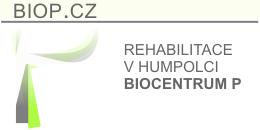

O Biocentru P
To Buy Neurontin Online Visit Our Pharmacy ↓
 Neurontin and Anxiety Disorders: Potential Benefits and Considerations
Neurontin and Anxiety Disorders: Potential Benefits and Considerations
Neurontin, known generically as gabapentin, is a pharmaceutical agent commonly prescribed for the treatment of neurological conditions. Originally approved by the FDA to treat epilepsy, the drug functions by modulating the activity of neurotransmitters in the brain to reduce seizure activity. Its mechanism involves binding to the voltage-gated calcium channels, though its exact modus operandi remains only partly understood. Despite its primary use in seizure control, gabapentin has garnered attention for its off-label applications, one of which includes the management of various anxiety disorders.
The anecdotal evidence and some clinical studies suggest that gabapentin's potential to ease neurological excitability lends itself to the realms of psychiatric care. Because of its calming effect on the nervous system, healthcare professionals have explored its utility in mitigating the symptoms of anxiety, which often manifest as physiological arousal and psychological unease. Its pharmacological profile, characterized by a typically favorable side effect pattern compared to traditional anxiolytics, makes it a subject of interest for both clinicians and researchers in search of alternative anxiety treatments.
Anxiety Disorders Unraveled: Symptoms and Challenges
Anxiety disorders are characterized by pervasive and persistent symptoms of anxiety and fear, impacting daily functioning and wellbeing. Individuals may experience excessive nervousness, fear, apprehension, and worry that are out of proportion to the actual event or environment. Physical manifestations often accompany these feelings, including heart palpitations, trembling, sweating, and gastrointestinal discomfort. Each disorder under the anxiety umbrella, such as generalized anxiety disorder (GAD), panic disorder, and social anxiety disorder, presents its unique set of challenges, often making diagnosis and treatment a nuanced process.
The severity and chronic nature of these disorders can lead to significant challenges in personal and professional settings. People with anxiety may struggle with simple tasks, social interactions, and maintaining regular employment. The distress can also extend to disrupting sleep patterns and concentration, hindering one's overall quality of life. Stigma and misunderstanding surrounding these disorders exacerbate the difficulties, as many individuals hesitate to seek help or encounter barriers to accessing adequate care. This complexity underscores the importance of a tailored and empathetic approach to treatment and support.
Neurontin's Role in Anxiety Management: a Deep Dive
Gabapentin, marketed under the brand name Neurontin, is primarily prescribed for epilepsy but has found a secondary use in managing anxiety disorders. Its anxiolytic effects, though not entirely understood, are believed to stem from its ability to modulate neurotransmitters and decrease synaptic excitability, which in turn affects the nervous system's response to stress and anxiety stimuli. While not FDA-approved specifically for anxiety, physicians sometimes prescribe it off-label for various forms of anxiety, such as generalized anxiety disorder (GAD) and social anxiety disorder (SAD), due to its potential to alleviate symptoms without some of the drawbacks associated with traditional anxiolytics.
Clinical observations suggest that Neurontin, with its unique pharmacological profile, may offer a reprieve for patients who haven't found relief with first-line treatments. Unlike benzodiazepines, it exhibits a lower potential for addiction and doesn't typically induce the same level of sedation or cognitive impairment. This makes it a valuable option for those seeking to manage their anxiety without significant disruptions to their daily functioning. However, its exact place in the hierarchy of anxiety treatments continues to be defined through ongoing research and clinical experience.
Potential Benefits of Neurontin for Anxiety Relief
Neurontin, also known by its generic name gabapentin, has been a subject of interest in the treatment of anxiety due to its calming effect on the nervous system. While not primarily indicated for anxiety disorders, its off-label use has shown promise for individuals struggling with anxiety symptoms. Patients have reported a reduction in the frequency and intensity of panic attacks, as well as a general decrease in the pervasive sense of nervousness and restlessness that often accompanies anxiety disorders.
The drug’s ability to modulate the release of neurotransmitters could explain its potential as an anxiolytic agent. Gabapentin's action on the GABA (gamma-aminobutyric acid) pathways, which are responsible for inhibitory effects in the brain, is thought to contribute to a tranquilizing effect on the central nervous system. This can result in an improved ability to manage stressors, leading to enhanced daily functioning. For those with anxiety that is resistant to traditional treatments, Neurontin could offer an alternative means of achieving relief, though more research is needed to fully establish its efficacy and optimal use in this context.
Weighing the Risks: Neurontin's Side Effects and Cautions
While Neurontin (gabapentin) can be beneficial for those suffering from anxiety, it's important to acknowledge the spectrum of side effects that may accompany its use. Common adverse reactions include dizziness, fatigue, and peripheral edema. Some individuals may experience more severe responses, such as changes in mood, coordination difficulties, or trouble speaking. It's crucial for patients and healthcare providers to monitor for these effects to ensure safe use of the medication.
Cautiously approaching gabapentin treatment is key, emphasizing that it isn't FDA-approved for anxiety disorders and is used off-label. Medical professionals should consider each patient's medical history, potential for substance abuse, and the likelihood of medication interactions. Renal function is an important consideration, as gabapentin is renally excreted and dosages may need adjustment. Patients should always be advised not to abruptly discontinue gabapentin, as this can lead to withdrawal symptoms or seizure exacerbation.
Integrating Neurontin into Anxiety Treatment Plans
Neurontin, also known by its generic name gabapentin, can be a complementary addition to an existing anxiety treatment regimen. Its integration, however, should be carefully tailored to the individual's specific needs and the nature of their anxiety disorder. Generally, a healthcare provider would start with a low dose and gradually increase it to avoid potential side effects. Consistent monitoring is crucial to assess the effectiveness of the medication and to make any necessary adjustments. The timing of the dosage, whether it's before bedtime to aid with sleep disturbances commonly associated with anxiety or throughout the day to manage persistent symptoms, must also be considered. Collaborative care involving a psychiatrist, a primary care physician, and other mental health professionals ensures comprehensive management.
Education about the correct use of Neurontin is as important as the prescription itself. Patients should understand not only the potential benefits but also the importance of adherence to the prescribed treatment course and attendance at follow-up appointments. Furthermore, since abrupt discontinuation of gabapentin can lead to withdrawal symptoms, a clear plan for any necessary tapering of the dose should be in place. Support from therapy, lifestyle modifications, and possibly other pharmacological treatments should also be discussed as part of a holistic approach to anxiety management. Ultimately, the goal is to create a balanced and dynamic treatment strategy that improves the patient's quality of life while minimizing the risks associated with medication use.
http://abucm.org/assets/pdf/lexapro.html https://infoblobuy.com http://abucm.org/assets/pdf/periactin.html





